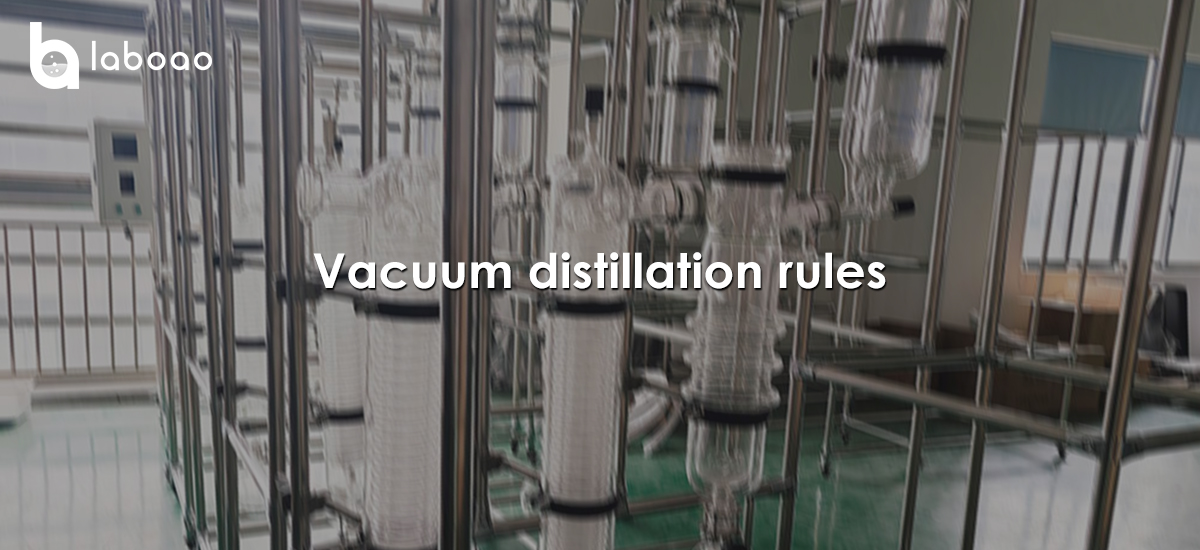
1. Accelerator for efficient separation
The molecular free path is lengthened: When the vacuum changes, the number of gas molecules in the system will also change. As the vacuum increases, the number of gas molecules decreases, and the probability of collision between molecules decreases. As the molecules of the substance to be separated fly from the evaporation surface to the condensation surface, the obstacles encountered are greatly reduced, and the average free path of the molecules increases. It is like opening a smoother road for the molecules, so that they can reach their destination, the condensation surface, more freely, thereby greatly improving the distillation efficiency. Some heat-sensitive substances, in a suitable high vacuum environment, their molecules can quickly change from liquid phase to gas phase, and then be quickly collected, and because the heating time is greatly shortened, they can better maintain their own chemical stability.
Improve heat transfer efficiency: A high vacuum environment helps to reduce the interference of gas molecules and reduce the resistance in the heat conduction process, thereby improving the heat transfer efficiency in the distiller. This is conducive to faster transfer of heat to the material to be distilled and accelerates its vaporization process.
2. Vacuum: "space environment" of molecular distillation
As the vacuum increases, the boiling point of the liquid will decrease accordingly. This characteristic shows great advantages when dealing with heat-sensitive and high-boiling point substances. In traditional distillation methods, high temperature is often inevitable, but this may cause the substance to decompose, polymerize or undergo other chemical reactions, ultimately affecting the quality of the product. Molecular distillation technology, with its ingenious operation of vacuum, can achieve the separation of substances at relatively low temperatures. For example, some natural flavor ingredients may require higher temperatures to be distilled under normal conditions, but in a high-vacuum molecular distillation device, the distillation process can be completed at lower temperatures, which effectively retains the natural flavor and nutrients of the spices.
3. "Double insurance" of purity and stability
Vacuum not only affects efficiency, but also is a "safety lock" for quality. High vacuum can reduce the number of impurity molecules in the system, so that the possibility of impurities mixing into the distillation product is reduced. In an ideal high vacuum environment, only the molecules of the target substance can smoothly pass through the distillation space to the condensation surface, thereby greatly improving the purity of the product. However, if the vacuum is insufficient, there are more other gas molecules in the system, and these molecules may interfere with the molecules of the target substance, causing impurities to be mixed into the distillation product, resulting in a decrease in product quality. Appropriate vacuum can also reduce heat loss during the distillation process, because the high vacuum environment reduces the possibility of gas convection and radiation heat loss, which helps to improve energy utilization efficiency and make the distillation process more stable.
4. Technical Difficulty: "Precise Control" of Vacuum Degree
Of course, the higher the operating vacuum degree, the better. Too high a vacuum degree places high demands on the equipment. On the one hand, it requires the device to have higher sealing and a more complex vacuum system, and to maintain an ultra-narrow pressure range of 0.1~100Pa. The accuracy error of the sensor and valve is ≤1%. The leakage of a screw may cause the system to "collapse". Special sealing materials + no dead angle design are indispensable. This will undoubtedly increase the cost of equipment and the difficulty of maintenance; on the other hand, some special physical phenomena may occur under high vacuum, such as the quantum effect of molecules, which may bring some unpredictable effects to the distillation process.
Therefore, in the molecular distillation process, the appropriate vacuum degree can optimize the molecular mean free path, reduce the distillation temperature, and improve the purity of the product. In practical applications, we have to precisely control the vacuum degree based on factors such as the properties of the substance to be separated, product quality requirements, and equipment conditions, so as to achieve the best distillation effect and meet the production needs of different industries.